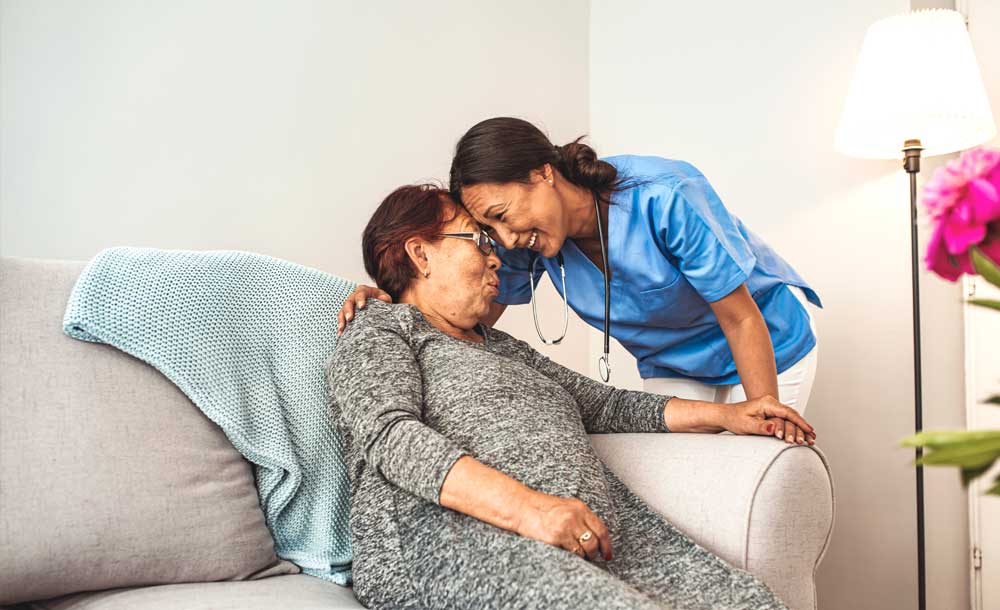About Our Collaborative
The Community Palliative Care Learning Collaborative is a unique partnership between Atlantic Health System, a leading New Jersey health system, and neighboring post-acute facilities. Led by Atlantic Health System, the collaborative aims to demonstrate improved outcomes for patients at long term care facilities by offering a year-long educational program.
The New Jersey long-term care facilities participating include:
- Limecrest Subacute and Rehabilitation Center
- Lincoln Park Care Center
- Morristown Post Acute Rehabilitation & Nursing Center
- Morris View Healthcare Center
- Oakland Rehabilitation & Healthcare Center
- Runnells Center for Rehabilitation & Healthcare
- Spring Grove Rehabilitation & Healthcare Center
- The Renaissance at Lincoln Park
- United Methodist Communities at Bristol Glen
This program was made possible through our generous donor, Marquis Health Consulting Services.

About Palliative Care
Palliate (verb): to relieve, soothe, alleviate, diminish; make a disease or its symptoms less severe or unpleasant
Palliative care is provided by a specially trained team of doctors, nurses and other specialists who work together with a patient’s other doctors to provide an extra layer of support. This type of care is focused on providing relief from the symptoms and stress of living with a serious illness – whether the patient is in the hospital, at home, or at a long-term care facility.
Palliative care is based on the needs of the patient, not on the patient’s prognosis. It is appropriate at any age and at any stage in a serious illness, and it can be provided along with curative or disease directed treatment like chemotherapy, surgery or dialysis.
Very often there are challenging and complex symptoms that accompany serious illness or are a result of the treatment for it. Some of these symptoms may be physical, such as pain, nausea, difficulty breathing or lack of appetite, but there are often other personal, social or spiritual effects. Many people who are living with serious illness experience feelings of anxiety, depression and difficulty coping or understanding the “big picture.” These are normal as well and palliative care addresses all of these.
Learn more about palliative care by reading answers to questions others have asked.
Frequently Asked Questions
What does the palliative care team do?
Palliative care (pronounced pal-lee-uh-tiv) is specialized medical care that focuses on providing relief from the symptoms and stress of a serious illness. It is provided by a specially-trained team of doctors, nurses and other specialists who work together with your other doctors to provide an extra layer of support. The goal is to improve your quality of life.
To do this, the palliative care team will:
- Relieve your symptoms and distress
- Help you better understand your disease and diagnosis
- Help clarify your treatment goals and options
- Understand and support your ability to cope with your illness
- Assist you with making medical decision
- Coordinate with your other doctors
What can I expect from palliative care?
In short, you can expect that your quality of life will be improved. You will have relief from symptoms such as pain, shortness of breath, fatigue, constipation, nausea, loss of appetite and difficulty sleeping. You can also expect close communication and more control over your care. Palliative care will help you carry on with daily life. It will improve your ability to go through medical treatments. And it will help you to match your goals to your treatment choices.
Will my insurance cover palliative care?
Most insurance plans cover all or part of palliative care, just as with other hospital and medical services. This is also true of Medicare and Medicaid. If costs concern you, a social worker or financial consultant from the palliative care team can help you with payment options.
Do I have to give up my own doctor?
No. The palliative care team provides an extra layer of support and works in partnership with your primary doctor.
Can I have curative treatment together with palliative care?
Yes, absolutely. Your treatment choices are up to you. You can have palliative care at the same time as treatment meant to cure you.
Who else, besides the patient, can benefit?
Everyone involved! Patients as well as family caregivers are the special focus of palliative care. Your doctors and nurses benefit too, because they know they are meeting your needs by providing care and treatment that reduces your suffering and improves your quality of life.
Where do I get palliative care?
Palliative care is available in a number of places. More and more, palliative care is available outside of the hospital in the places where you live. You, your doctor and the palliative care team can discuss outpatient palliative care or palliative care at home. Some hospitals also offer outpatient palliative care even if you have not been in the hospital. Check with your doctor. These include hospitals, outpatient clinics and at home.
Who provides palliative care?
How does palliative care help me choose the best treatment option?
When should I ask for palliative care?
Recent cancer guidelines say that cancer patients should receive palliative care early and together with their other treatments. People who are newly diagnosed with advanced cancer should receive a palliative care consult within eight weeks of their diagnosis. Read the guidelines
How do I get palliative care?

Living with a serious illness? Palliative care can help. This specialized medical care can be provided with your other care to help improve your quality of life.

Patients with a serious illness are facing a complex and challenging burden. Learn how you can offer patients an additional layer of support through palliative care.

Health care professionals from participating long-term care facilities can access palliative care resources through the Community Palliative Care Collaborative portal.
